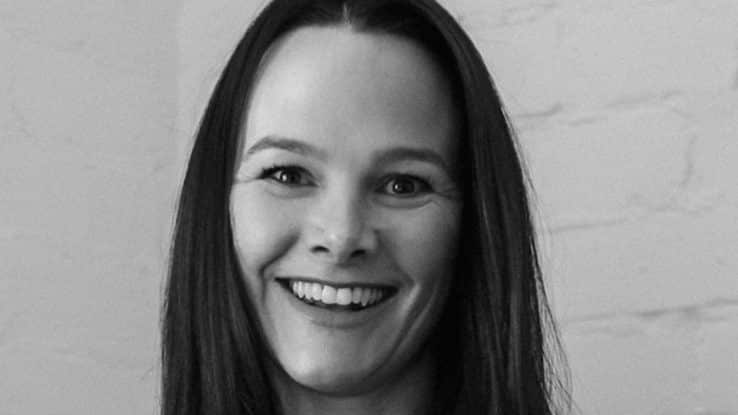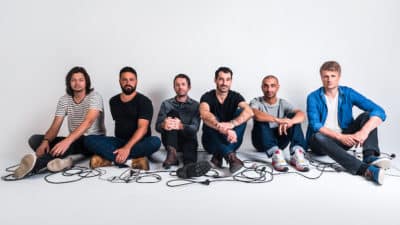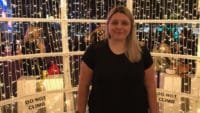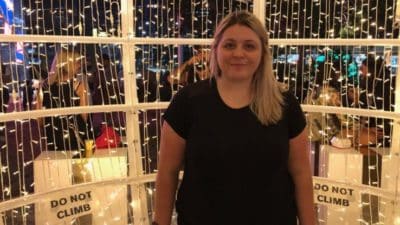Music

Industry
Industry Q&A: Correne Wilkie –Artist Manager and Director of Maven & Muse
As Director of Maven and Muse, the Manager of The Cat Empire, and co-founder of SuperBloom Wellbeing Festival, Correne Wilkie has spent a lot of time navigating the Australian and international music industries. We sat down with her to chat all things music industry and The Cat Empire.
There aren’t many people who can say they’ve been alongside Melbourne juggernaut The Cat Empire since the very beginning, but Correne Wilkie sure can. As the band’s manager, for the last two decades she has taken them around Australia and then around the world more times than most people can imagine. Her hats don’t stop there though. She is also the Director of Maven and Muse, as well as the co-founder of SuperBloom Wellbeing Festival, and now she is finding ways to combine all of her loves into helping move the music industry forward. We sat down with Correne to chat about her time with The Cat Empire, the state of the music industry in Australia, and how her career has progressed across the last two decades.
How long have you been working in the music industry and how did you initially get involved? I have been managing The Cat Empire for 18 years – my entire adult life. I fell into it through a series of sliding doors moments that saw my life change forever. I saw the band play their third show as a six-piece and have been with them since that moment, best described by a friend who was with me that night as “she fell into a trance that she has never come out of.”
What does a regular day for you involve? My mornings are punctuated by barking “please eat your breakfast, brush your hair, wash your face, get dressed, put your shoes on…etc etc” and evacuating the house with my two little daughters and my partner. Then I am generally office-bound, working across the macro and the micro; where are we headed longterm? What do we need to be focusing on right now to get there? What needs to be done today? Despite the punishing workload in the office, I try to get out on road with the band for at least some of every tour, and that’s still my favourite part of the job. I still get goosebumps every time I see them walk onstage and hear the roar of the crowd.
With so much going on, how do you keep a work/life balance? I try to be realistic with myself about what is achievable. I put great people around me both in the office and in our home life, to keep everything ticking. I prioritise putting “meetings with myself and my family” in my diary and treat them with the importance of a meeting I can not bail on; yoga, nights out with my partner, family time, acupuncturist, seeing my girlfriends…all the things that are important to me and keep me well get scheduled in first.
I don’t work at home, being available for nine hours each day is more than enough. I don’t answer my phone after 6.30pm unless the band is on tour. I have learnt to say “no” and “yes” with certainty. I have millions of ‘hacks’ to enable me to run this long-distance marathon. More about that below in the industry wellbeing section.
With two decades in the industry, what are some of the biggest changes you’ve witnessed so far? In the time I have been in the industry we have moved from a CD/DVD landscape to streaming. When we re-furbished our office recently, I was looking nostalgically at the triple-platinum plaques on the wall, and thinking how fun that game used to be.
The world is flat now, there are no longer any borders on where your career can go. You can be “talking” with the entire world all at once. When we first started, we literally had to get on a plane and land in a country to find out if there were any fans there. Now we can see it on our data dashboard. Our touring is much more informed now than it ever was.
The industry has become way more professional, and that is a complete joy to me. There are so many young guns that I meet each year now at The Seed and other workshops, who are coming into the industry with professionalism, hunger, innovation and other great entrepreneurial qualities. There were a lot of cowboys when I started, but they seem to have mostly ridden off into the distance now.
What do you think are the most important changes currently happening or that need to happen for the industry to continue growing? There are many, but we can’t each fight them all, so we each have to choose something we are passionate about taking on and then jump into the conversations and actions that create change in that area.
My crusade this year at an industry level has been around Industry Wellbeing, and looking at what we need to be doing better individually, in our businesses and teams, and as an industry to foster longterm, sustainable health and wellbeing. I co-founded Super Bloom Festival this year with my partner, and now I am bringing some of those Wellbeing experts and insights to the music industry via panels at Changes, Indie-Con, and BigSound. I want to see the industry move away from the silos of “crisis management” and “mental health crisis support” to engaging in the critical parallel conversation of prevention, and implementing solid business practices that consider the welfare of everyone involved in our business. It’s too late when we are in crisis, we need to be averting crisis and the huge incidence of burnout and other career-ending health issues through working in healthier ways.
How do you see the current state of the Australian music industry? It is always exciting. Every time I turn around someone else is coming through and outstripping expectations on stage and off stage. It is never dull and there is always room to innovate and ride whatever the next curve is that the industry and these days, technology, presents. Australians and Australian music are still so well received globally, and the world is more accessible than ever for artists. The rule book has also been thrown out the window, so artists and their representatives can really choose their own adventure now in terms of how to release music, speak to fans, deliver shows, find audiences – you can do things on your own terms now more than ever, and carve the kind of career and life you want to be living.
What have been some of your biggest career highlights thus far? The big career moment things like playing Letterman and Leno, Glastonbury, Royal Albert Hall London etc are always pinch-me moments. But more subtly, working for 18 years with people who I respect and admire and still laugh my face off with is really special to me. We have shown to ourselves and each other what real commitment is, and have ridden the highs and lows together. We have shared a lot, and we have had a very blessed run. Mentoring some amazing women in my business, and some incredible managers who have gone on to do impressive things has also given me huge joy. I’m really proud of my involvement in fostering the growth of others.
What about some of the biggest challenges? The biggest would be combining motherhood with managing a massive global company. But what I learnt is how effective I can be. How I can get more quality work done with less time, and how I stopped sweating the small stuff. It also forced me to let go and allow others in my business to rise up and learn and take responsibility. There were days when I thought I couldn’t do it all, but I am glad I conquered those early years with little children and held on, because they are older now, and I’m still doing what I love, but I didn’t have to miss out on the great love of having my own children, which a lot of women running big companies consciously and sometimes unconsciously choose to do. Fortunately, I choose to have children with a very evolved man who was raised by a feminist, so we are a great team and make it all work between us.
You manage a band that spends a lot of time touring overseas. How does the Australian music industry compare and differ from those internationally? I love working in the Australian industry because it is possible to be the manager, agent, promoter, and navigate the scene and relationships with ease and familiarity. Being able to do that reduces the cost basis dramatically. I am pained every time I look at our overseas tour statements and see the law of diminishing returns after agents/promoters/venues/tax/work visas all take their cut. I really do value all of our overseas partners, but I value being able to perform those functions here so the money goes in the band’s pockets.
The music industry in overseas territories has intricate quirks in each country, which you have to navigate. Often they are cultural quirks, or clashes of objectives that need ironing out. Getting face-to-face at least once a year with all of our team members on the touring and label side is critical, so they can remember where we are coming from, not just be trying to decipher tone down a chain of emails. The Cat Empire has been lucky to have a large loyal fan base at home and overseas. The home town shows are always very powerful for us though, they remind us how far we have come.
What advice would you give to young people who would like a career in management? Quite simply: Go to The Seed Management Workshop. From there, you will be on your way; informed, inspired, and with a network of colleagues to call on.
What does the next 12 months look like for you? The band are just wrapping up a European tour as I type this. We have an Australian tour happening in October and November. Then 2020 will involve more overseas touring. Back in Melbourne, I am welcoming a new Director of Marketing to my team, we have a gorgeous new HQ, and we are ready for the next frontier. I am moving in a few new directions at the moment professionally, and looking to further build Super Bloom Festival into an extended offering of great life events throughout 2019/2020. It’s never dull around here.
We always like to finish with this one – who are the artists we should have on our radars right now? Tones and I. I believe in her management, they will do great things with her talent.
The Cat Empire will hit the road this October and November. For more information head here.









